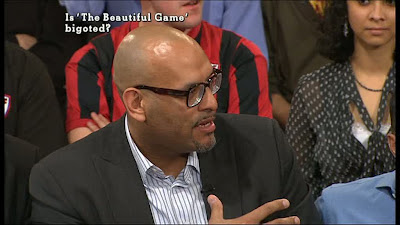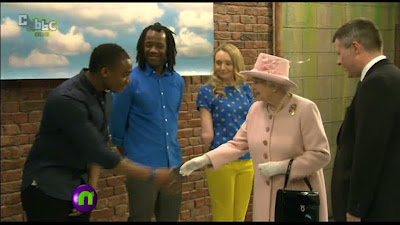BBC School ReportA great deal of hard work was put in by schools from around Britain.
How many of the participants in
BBC School Report have considered the extent to which journalism actually affects attitudes? Who was making the editorial decisions in the two hour live web stream which went out from 2-4pm?
Newsround at 3.45pm yesterday
began like this: "Hi guys. It's Ore here with everything you need to know this afternoon. Now it's our job on Newsround to tell you the stories that matter to you ...."The programme went on to include three items. Firstly the BBC School Report, which was already underway on the web. Next there was a story about boyband One Direction, who are making it big in the American charts right now. And the last story was about the British Animation Awards:-
Ore: "And finally Peppa Pig, Postman Pat and Shaun the Sheep and these guys Wallace & Gromit will be dusting off their bow tie for the big British Animation Awards taking place tonight. Up for grabs is the best cartoon character of all time award ..."
The flagship 5pm bulletin on BBC One yesterday reported the following 7 stories -
1} Row about cruelty involved in horse racing
2} Refugees fleeing violence in Syria
3} BBC School Report
4} St Asaph has new status as a City
5} Prince Harry interview on the Jubilee celebrations
6} British Animation Awards
7} One Direction
So those were yesterday's stories which, as Ore said earlier, matter to Newsround's viewers.
As you can see, there wasn't a word to say about the big human rights story of the day - plans to end marriage discrimination against lesbian and gay couples. Isn't it just possible that a story about gay equality might be relevant to quite a lot of Newsround's audience and/or their families?
Religion, on the other hand, is treated as something quite
suitable for kids. And today's announcement by the Archbishop of Canterbury was the lead story on Newsround at 3.20pm and 4.25pm today. In
the 3.20pm report Nel told viewers that Rowan Williams is
"the most senior person in charge of the Church of England, apart from the Queen and God of course." With kids' TV happy to report on faith news, whilst the same time maintaining its anti-gay censorship policy, is it any wonder that homophobic attitudes are prevalent in Britain's primary schools?



